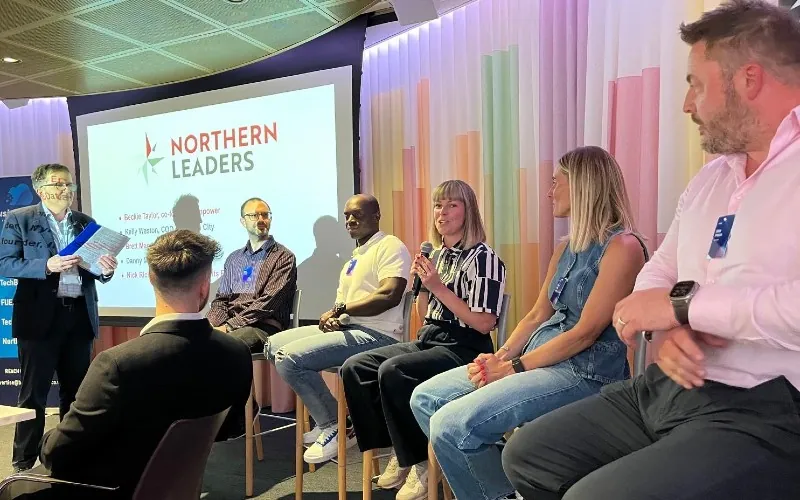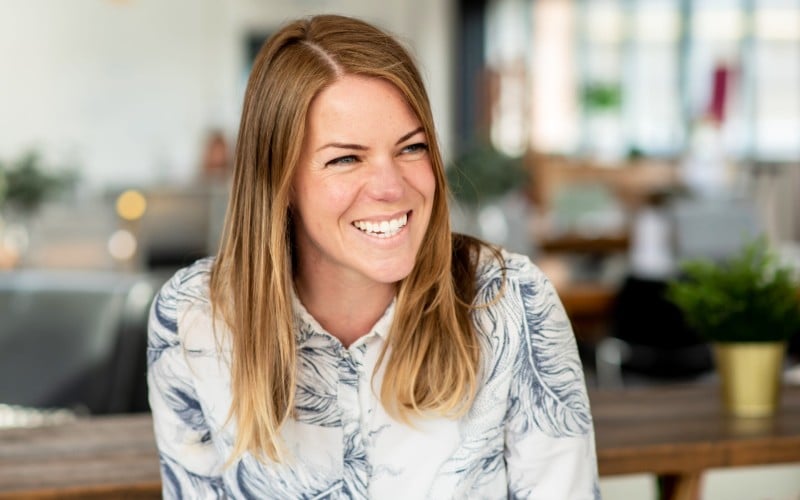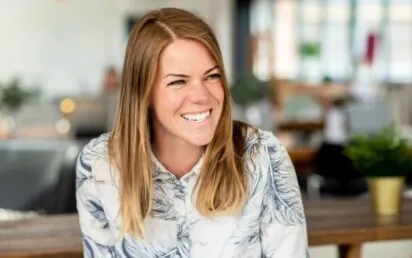Kelly Weston didn’t intend to become COO at one of Leeds’ most talked-about startups – but in her words, The Data City has always ‘done things a little bit differently’.
The company raised £2m last year, valuing it at £19m. Weston says the Yorkshire city has been gaining momentum, in part thanks to events like the Leeds Digital Festival, which she says ‘bring a lot of attention and investment to the city’.
But for Weston, who came into the company as a consultant in 2021 and became COO the following year, the bigger focus is on making tech more accessible – especially for women.
She was speaking at BusinessCloud’s latest Northern Leaders event – Meet the New Generation of Entrepreneur (NGE) – in Leeds last week.
“I’ve worked in tech for about 20 years,” she told BusinessCloud. “I moved over from digital into data. Like a lot of people from 20 years back, I fell into it – STEM just wasn’t supported. Certainly not in the UK.
“In Sweden, they noticed girls were underperforming in STEM subjects and they rectified it. Then girls started overperforming, so they rectified it again. I don’t think we’re as agile as that here.
“Personally, I find all the ‘women in tech’ stuff important – but we need to move on to the next thing. We can’t until it equalises.
“These kinds of initiatives are really good for showing what the stats are telling us, but we just need to move a lot faster. We need to be more agile.
“Just do it quicker. Just be better, faster. Respond.”

From consultant to COO
Weston (above) joined The Data City as a consultant, working one day a week. The founding team quickly realised her impact.
“In 2022, I presented my plan for the year ahead, and two of the founders said: ‘Well, so you’re COO.’ I said: ‘No, I’m not. I’ve never done global before.’ And they said: ‘Neither have we.’ And I replied: ‘Yeah, I guess I am then’.”
“I’ve always been in environments where people recognise that sometimes women don’t ask for these things. You get unqualified men saying: ‘I want this, I want that,’ but women often don’t.
“They [the founders] knew me, they knew my background. They bought up every day I had available until I became part of the team.”
She’s now full-time – technically four and a half days a week – and central to the company’s growth and culture.
How a Manchester global agency is facing up to the AI challenge
Doing things differently
The company has always been hybrid, even before COVID, with staff dotted around the country.
“We just never questioned how people worked as we have that faith in them. We believe you’ll do your best work when you’re in the best environment, that includes the hours you work.
“We would never question anybody saying they’d like to work part time, because we trust that they’ll do their best work during that time.
“That gave us a big draw because we were different and really agile.”
CTO and co-founder Thomas Forth, whom Weston describes as ‘a polymath’ and ‘profound on Twitter/X and now BlueSky’, is another big reason for staff to want to come and work in Leeds, she believes.
Although hybrid working is still core to their model, Weston stated that there’s been unexpected value in people being physically together again.
She explained: “We saw huge value when people came back into the office – those overheard conversations where a data scientist, a front-end developer and a mathematician would be like: ‘Oh, that’s the problem. I’ll work out the methodology.’
“Then the data scientist signs it off, the developer puts it live – and it’s just live more productively.”
That sparked a subtle shift – people started moving to Leeds just to be part of the culture.
“It’s a big responsibility to make sure people are happy, collaborating and making friends outside of work,” Weston continued.
“We still want that flexibility, but now we’ve got people all over England who’ve chosen to move to the city.”
Leeds, London and everywhere in between
The company remains proudly Leeds-based, but talent is spreading.
“Our team is all over the country, but they’re coming closer and closer,” the COO said.
“We take on placement students from different universities. We’re finding we get such great strength from Leeds University, so it was natural to work closely with them.”
The London team came about more organically, but there is no formal plan in place for a hub in the South.
Weston said: “They were basically a spin-out of the Open Data Institute. Now we’re starting to build this micro London team. It just makes sense because they work well together.
“Is there a formal London plan? Not really.
“We’re lucky with our partnership with Oxford Economics. We don’t need to plan that far ahead and we’re really flexible.”
Supporting female founders with data
The Data City’s work around gender equity in tech doesn’t stop internally. It played a role in shaping the Lifted Ventures initiative, contributing female founder data to a report by EY.
“That was a bit of a prototype,” she said. “Our data fed into the EY Female Founders report, and now the Invest in Women group has launched the Lifted project, so it’s basically a spin-out.
“It’ll launch in five cities and be a platform with lots of different data points on female founders, including investment, return on investment, and so on. We’re providing some of those data points.”
Whilst Weston doesn’t shy away from the challenges in the system, including a potential lack of responsiveness from some institutions, she remains focused on action.
“Time is our biggest commodity,” she said. “When people spend hours writing documents that never get properly read – we’ve got to fix that.
“But everyone needs to be more agile. It’s not enough to just identify the problems. We’ve got to act faster.”


